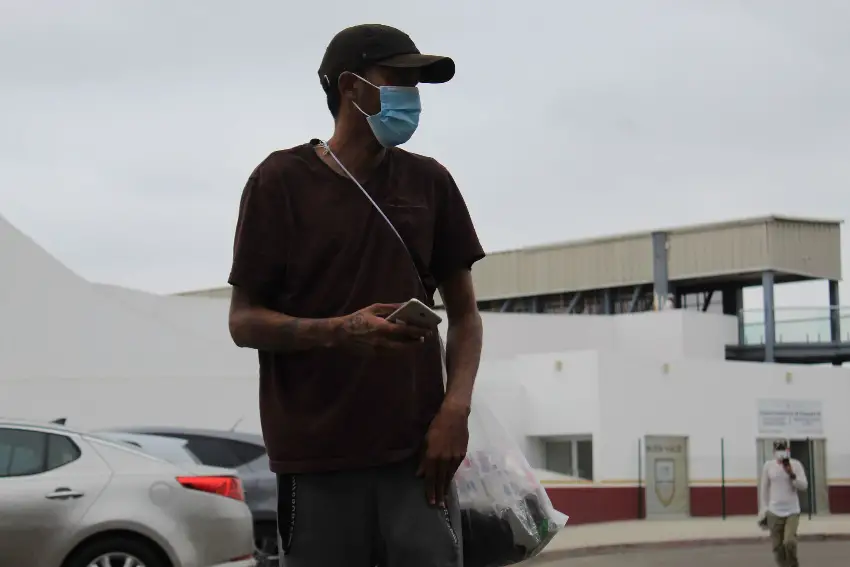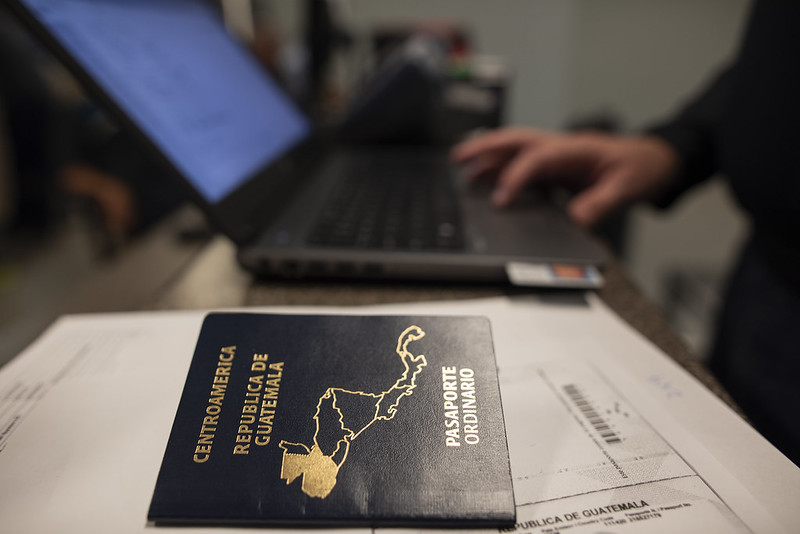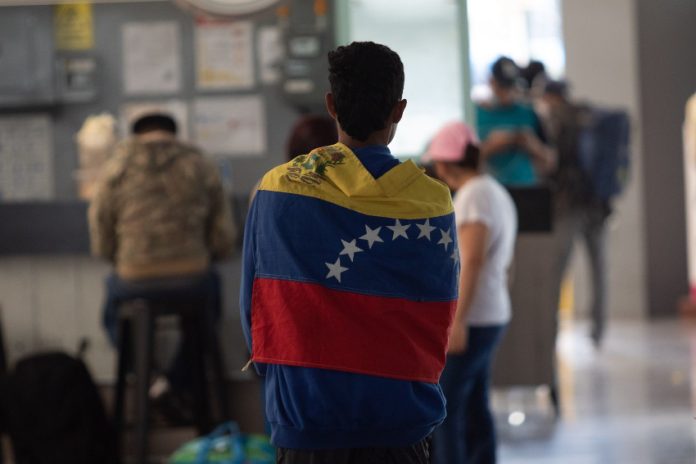The United States has begun expelling Venezuelan migrants to Mexico after the neighboring countries reached a new immigration agreement last week.
The U.S. Department of Homeland Security (DHS) announced Oct. 12 that “effective immediately, Venezuelans who enter the United States between ports of entry, without authorization, will be returned to Mexico.”
The Associated Press and Reuters reported that expulsions of Venezuelans have already begun.
The DHS said in a statement that the “joint actions with Mexico” were designed to “reduce the number of people arriving at our southwest border and create a more orderly and safe process for people fleeing the humanitarian and economic crisis in Venezuela.”
The announcement of the deal came less than a month before midterm elections in the United States at which the Democratic Party – portrayed as being weak on immigration by its rivals – runs the risk of losing control of Congress.
The DHS said Oct. 12 that “almost four times as many Venezuelans as last year attempted to cross our southern border, placing their lives in the hands of ruthless smuggling organizations.”
“…The actions the United States and Mexico are announcing today are intended to address the most acute irregular migration and help ease pressure on the cities and states receiving these individuals,” the department said.
The DHS said that the U.S. government’s “comprehensive effort to reduce the irregular migration of Venezuelans also includes a new process to lawfully and safely bring up to 24,000 qualifying Venezuelans into the United States.”

“The United States will not implement this process without Mexico keeping in place its independent but parallel effort to accept the return of Venezuelan nationals who bypass this process and attempt to enter irregularly.”
Secretary of Homeland Security Alejandro Mayorkas said that “these actions make clear that there is a lawful and orderly way for Venezuelans to enter the United States, and lawful entry is the only way.”
“Those who attempt to cross the southern border of the United States illegally will be returned to Mexico and will be ineligible for this process in the future. Those who follow the lawful process will have the opportunity to travel safely to the United States and become eligible to work here.”
The Mexican government noted in its own statement last week that the United States program is for Venezuelans who arrive to that country by air rather than by crossing the land border, and that it is based on the “Uniting for Ukraine” scheme, under which Ukrainians fleeing Russia’s invasion have been able to enter the U.S. to live and work for a period of two years.
The Mexican government also said that the United States had accepted its request to “substantially increase” visas for workers from Mexican and other countries in the region, indicating that there was a precondition for its agreement to accept Venezuelans.
“The United States has announced it will grant 65,000 additional H2-B visas for temporary non-agricultural workers, of which 20,000 will be allocated to people from Central America and Haiti,” the federal government said.
With regard to the DHS announcement on expulsions, the government said it would “temporarily” allow “some people of Venezuelan nationality” to enter Mexico via the northern border.
Mexico has been accepting migrants expelled under the Donald Trump-era “Remain in Mexico” policy and the COVID-related Title 42 provision, but “Venezuelans who crossed illegally into the United States were often allowed to stay because it was difficult to send them back to Venezuela or Mexico,” Reuters reported.

Citing two unnamed U.S. officials, the news agency said that as many as 1,000 Venezuelans per day could be expelled to Mexico under the new agreement. About 300 were sent to Mexico after the deal was announced, the sources said.
The Associated Press reported that the United States expelled Venezuelans via several border crossings on Oct. 13. The news agency said it was informed of the expulsions by Catholic Church shelters in the border cities of Matamoros Ciudad Juárez and Piedras Negras.
“The people are very angry, very annoyed,” said Francisco Gallardo, a priest and director of the Casa del Migrante shelter in Matamoros, where some 120 Venezuelans arrived on last week.
“They’re surprised, they want answers and we don’t know what to tell them,” he said.
Yadimar, a young pregnant Venezuelan woman, and her husband were expelled from El Paso to Ciudad Juárez.
“They didn’t ask us anything. They put a bracelet on us and sent us back,” she told Reuters.
“We’re on the street. We don’t even have money to pay for a place to stay.”
In Mexico City, the director of a group that assists Venezuelan migrants told Reuters that “we’ve been overwhelmed by the news” that those who are apprehended after entering the U.S. illegally will be returned to Mexico.
Lizbeth Guerrero predicted that many Venezuelans who are already in Mexico will continue to the northern border and attempt to enter the U.S. because they have nothing to return to at home, where poverty and crime are major problems.
United States data shows that over 150,000 Venezuelans were apprehended at the U.S.-Mexico border between October 2021 and August 2022, compared to just under 48,000 in the 2021 U.S. fiscal year.
Rosa María González, a National Action Party deputy who heads up the migrant affairs committee of the lower house of Mexico’s Congress, called on the U.S. government to issue more visas to Venezuelans because Mexico’s labor market can’t accommodate all those who have arrived here.
If Venezuelans can’t find a job here and can’t seek asylum in the United States they are at risk of becoming prey for violent crime gangs, she said.
“They make more money out of migration than they do from drugs,” the lawmaker said.
